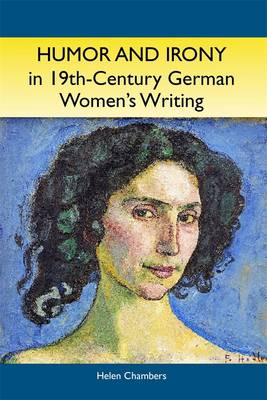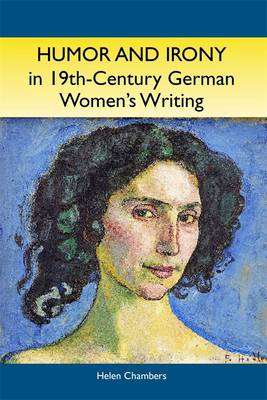
- Retrait gratuit dans votre magasin Club
- 7.000.000 titres dans notre catalogue
- Payer en toute sécurité
- Toujours un magasin près de chez vous
- Retrait gratuit dans votre magasin Club
- 7.000.0000 titres dans notre catalogue
- Payer en toute sécurité
- Toujours un magasin près de chez vous
Humor and Irony in Nineteenth-Century German Women's Writing
Studies in Prose Fiction, 1840-1900
Helen Chambers
177,45 €
+ 354 points
Description
Brings to light unsuspectedly rich sources of humor in the works of prominent nineteenth-century women writers. Nineteenth-century German literature is seldom seen as rich in humor and irony, and women's writing from that period is perhaps even less likely to be seen as possessing those qualities. Yet since comedy is bound to societal norms, and humor and irony are recognized weapons of the weak against authority, what this innovative study reveals should not be surprising: women writers found much to laugh at in a bourgeois age when social constraints, particularlyon women, were tight. Helen Chambers analyzes prose fiction by leading female writers of the day who prominently employ humor and irony. Arguing that humor and irony involve cognitive and rational processes, she highlights the inadequacy of binary theories of gender that classify the female as emotional and the male as rational. Chambers focuses on nine women writers: Annette von Droste-Hülshoff, Ida Hahn-Hahn, Ottilie Wildermuth, Helene Böhlau, Marie vonEbner-Eschenbach, Ada Christen, Clara Viebig, Isolde Kurz, and Ricarda Huch. She uncovers a rich seam of unsuspected or forgotten variety, identifies fresh avenues of approach, and suggests a range of works that merit a place onuniversity reading lists and attention in scholarly studies. Helen Chambers is Professor of German at the University of St Andrews, Scotland, UK.
Spécifications
Parties prenantes
- Auteur(s) :
- Editeur:
Contenu
- Nombre de pages :
- 232
- Langue:
- Anglais
- Collection :
- Tome:
- n° 6
Caractéristiques
- EAN:
- 9781571133045
- Date de parution :
- 01-06-07
- Format:
- Livre relié
- Format numérique:
- Ongenaaid / garenloos gebonden
- Dimensions :
- 164 mm x 236 mm
- Poids :
- 471 g

Les avis
Nous publions uniquement les avis qui respectent les conditions requises. Consultez nos conditions pour les avis.






